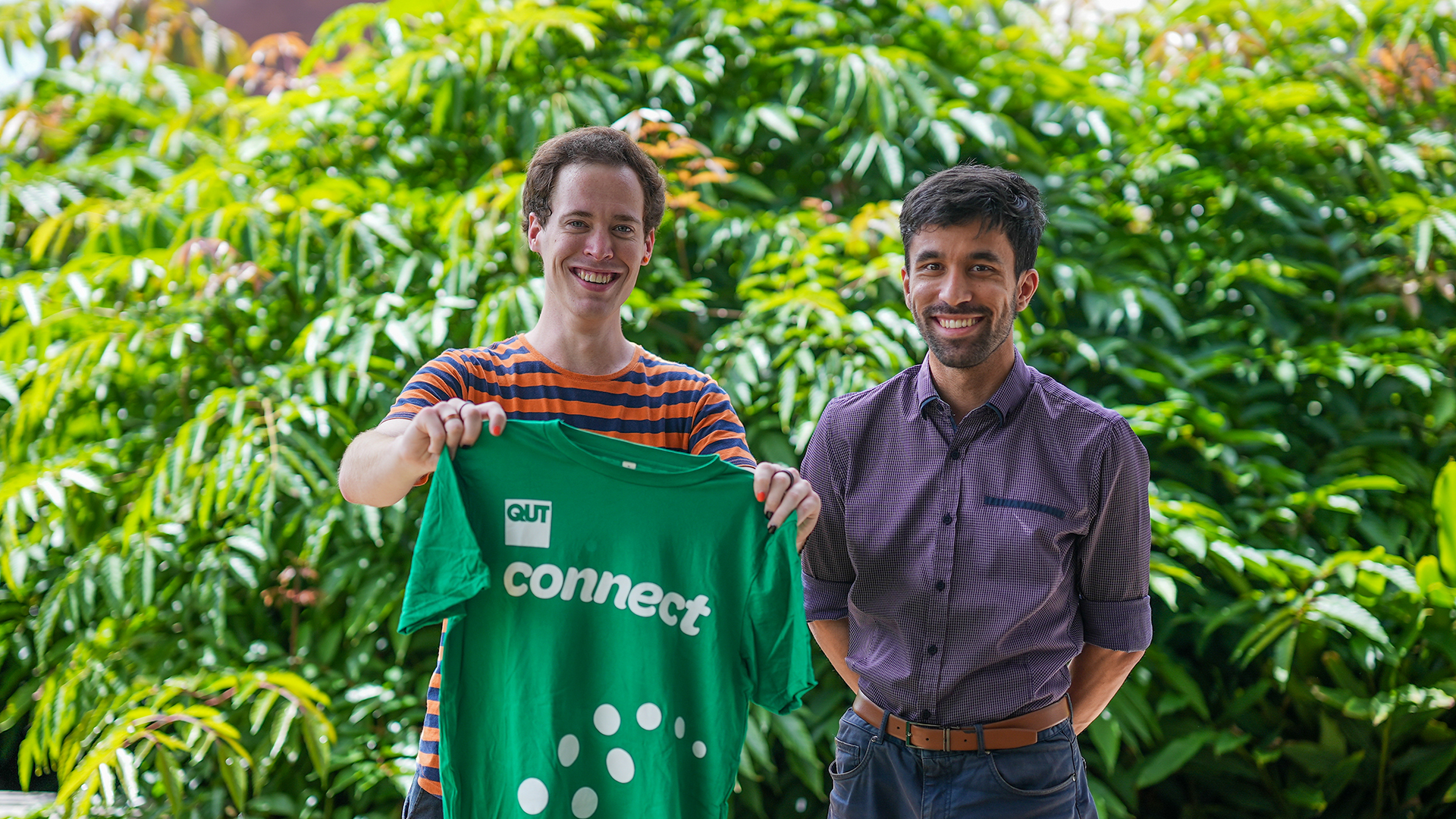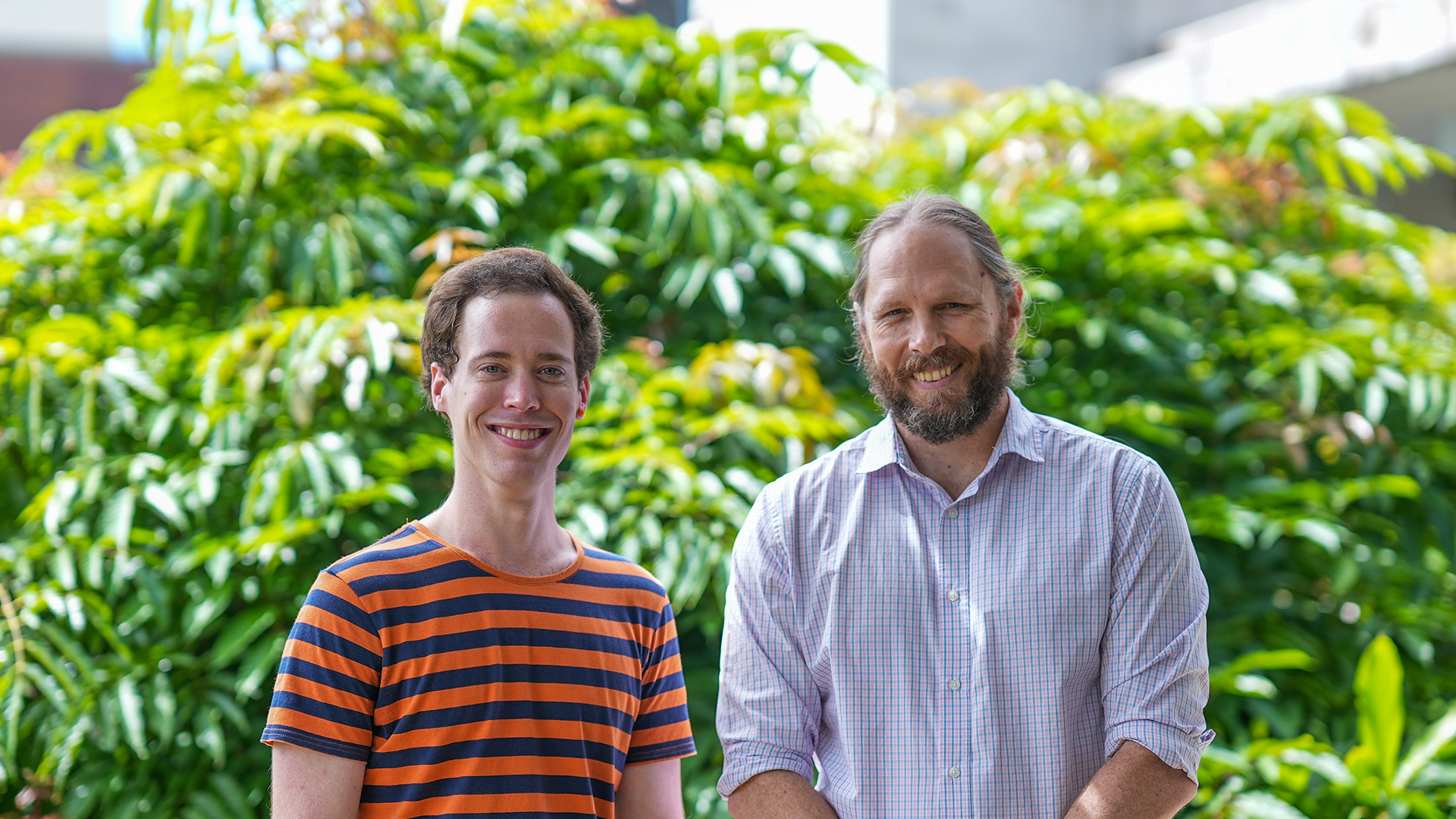Student mathematician Joshua Rosentreter combined extra-curricular and course learnings to design software that transformed Orientation Week volunteer shift management.


As a QUT Connect volunteer he participated in programs, like Orientation Week, which helped new students settle into university life.
As a volunteer, Joshua recognised Orientation Week shift assignment was a labour-intensive task that took QUT Connect multiple days to complete.
“Over 150 volunteers filled out a survey to signal their availability, and QUT Connect would spend two to three days manually assigning volunteers to over 250 shifts,” said Joshua.
“While studying a Bachelor of Mathematics (Honours), I saw an opportunity to complete a research project that would help QUT Connect streamline shift allocation.”
Joshua combined insights from his volunteer days with knowledge gained from his studies to program software which turned the lengthy process into an automated task.
“The software takes the QUT Connect data and transforms it into a different format which is used in a Mixed Inter Program – a research technique that models problems in a mathematical way to apply algorithms and find optimal solutions,” said Joshua.
“The software determines optimal shift assignments, which are then fed back into a format that is useful for QUT Connect,” said Joshua.

QUT Connect Coordinator, Stephen Chinnery said it took some convincing to move away from the manual process.
“We were wary at first, we need to turn around volunteer shift allocation the week before Orientation so there’s not a lot of room for error. Our process had been tried and tested over a number of Orientation Weeks and, while labour intensive, our staff were comfortable with it,” Stephen said.
“Joshua used a mock data set to test the software and demonstrate its benefits to us – this proved its reliability. Instead of taking days to assign shifts, the software enabled us to complete the task in less than an hour.”
QUT Connect had not previously investigated automating the process, it was through chance that Joshua recognised the problem and offered a solution.
“QUT Connect tends to attract engaged students who are often outgoing. Most really want to contribute to their community in a positive way,” Stephen said.
“Joshua is a shining example of QUT students’ and volunteers’ entrepreneurial spirit. His insight into student life, combined with his math knowledge inspired him to find a solution to a real-world problem,” said Stephen.

Joshua’s supervisor, Associate Professor Paul Corry echoed QUT Connect’s sentiments. He said Joshua’s initiative is a great example of the real-world applications for mathematics.
“Joshua is a great example of how our Maths graduates are well-equipped to make a significant impact in the real-world. He is to be congratulated for the initiative he has shown to develop and deliver this project,” Associate Professor Corry said.
Joshua said studying maths and game design taught him to look at problems in a new light.
“When I decided to study maths and game design, I wasn’t sure what I would do for a job. I just enjoyed maths and gaming during high school and knew I wanted to learn more,” Joshua said.
“Developing the skills to make a game taught me to visualise data, and studying maths encouraged me to think beyond obvious solutions. I had first-hand experience with QUT Connect’s problem and was able to provide a solution that was more efficient and effective than the existing process.”
For more information about studying math, games and design visit the QUT Faculty of Science, or register to attend the upcoming Pathways to QUT webinar on 6 May, 2021.



































